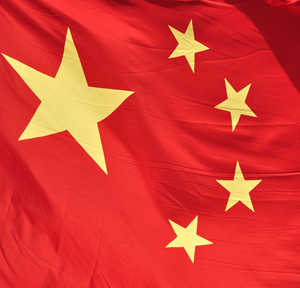Investment Strategies
Chinese Consumers Eager To Purchase Luxury Goods – KPMG Report

Over 70 per cent of Chinese consumers plan to head overseas once the country’s quarantine policy is lifted, new research from KPMG shows.
The rapid urbanization and economic development of mainland China has led to a booming luxury market, and purchasing habits of consumers have become more complex than ever, a report released this week by KPMG reveals.
According to the report, Chinese consumers are eager to purchase luxury goods as a means of social advancement and self-differentiation. They are also highly accustomed to shopping during their travels, with over 70 per cent of Chinese consumers planning to travel overseas after mainland China's quarantine requirements are lifted.
The 2023 KPMG and DLG report on China Luxury Redefined: Building trust with Chinese consumers through authenticity and integrity, is based on a survey of 2,653 consumers living in mainland China and Hong Kong.
In the study, KPMG identified key takeaways for luxury brands to consider in targeting the evolving Chinese consumer, including being purpose-driven, respecting local culture, leveraging digitalization, understanding the new luxury concept and capitalizing on Gen Z growth.
The report also draws upon insights from in-depth interviews with executives from the luxury industry to supplement the findings.
Willi Sun, head of advisory, consumer and retail, KPMG China, said: “Given the rapid development of the country throughout the years, Chinese consumers are evolving fast and have developed a global perspective within a relatively short period of time compared with other mature economies. The definition of luxury among Chinese consumers may not always be the same as how the West views luxury.”
Purchasing power is a critical factor in the ability to buy luxury items and drives the development of consumer mentality, KPMG said in a statement.
According to the survey, Chinese consumers were found to have the confidence to spend, with increased income and economic development allowing for greater purchasing power and thus a growing appetite for luxury goods.
They are eager to purchase luxury items as a means of social advancement and the expression of personality, and are highly influenced by media content in their purchasing decisions.
Gen Z
Gen Z is rapidly becoming the largest consumer base for luxury
brands, and their propensity to consume is quite strong, KPMG
added. Based on the survey, 21 per cent of Gen Z survey
respondents are willing to spend more than 16 per cent of their
income on luxuries – a relatively large proportion for
individuals who have just completed their first degree or
recently entered the job market. Their preferred channels for
purchasing are key e-commerce platforms and brand official
channels.
Following nearly three years in relative isolation, massive shifts in the global luxury market are to be expected once leisure travel for Chinese shoppers resumes as well, KPMG continued.
A couple of phases can be expected during this reopening process, the firm said. The first phase will be a period of transition where actual travel might be slow to pick up, and a second phase is expected to kick in when travel truly resumes. Covid-19 has irrevocably impacted the shopping patterns of Chinese consumers, and an immediate rebound in spending and return to old habits is unlikely.
However, an adjustment in the proportion of domestic and international luxury spending can be expected. At the same time, when international travel resumes for Chinese shoppers, additional questions related to consumer data collection and the reactivation of these shoppers when they return to China will also resurface.
While WeChat has been the most appealing platform in China for CRM because of its advanced data collection capabilities which allow for better consumer segmentation and more effective life cycle communications, international brands in the market do not always have the right infrastructure in place.
Brands
Pablo Mauron, partner and managing director of China, Digital
Luxury Group, added: “Global brands have been able to get by with
a somewhat extended version of their global CRM infrastructure in
China until the Personal Information Protection Law came into
effect in 2021.”
“With these new regulations, brands now have to completely rethink their consumer data infrastructure to both meet local regulations and maximize performance – something that is exceedingly important at a time when customer retention and life cycles have become a growing focus for brands,” he continued.
Young people are also increasingly adopting an environmentally friendly lifestyle. This trend is reflected in the increased demand for sustainable travel, with the consumer survey indicating that 90 per cent of mainland China respondents agreed to put more effort into achieving sustainable travel.
According to the survey, the younger generation places a higher importance on sustainability and corporate responsibility when making luxury purchases: 30 per cent of surveyed consumers aged between 18 to 24 think it is a key consideration, compared with only 16 per cent for those aged between 45 to 54.
Jennifer Weng, head of tax, consumer and retail, KPMG China, said: “Mindsets of Chinese consumers may change due to external factors such as relevant policies on ESG and brands’ initiatives around consumer education. Some of these top-down actions are pushing consumers to think and act differently than they would have without this influence, leading to higher awareness and different purchasing behaviors.”
The definition of luxury is also changing, KPMG said. The study found that corporate responsibility was the second most important factor in potentially changing consumers’ purchasing habits and mentality. In addition, when preferred brands are found to conflict with a consumer’s personal beliefs or values, more than 40 per cent of respondents will stop purchasing from those brands, and even persuade others to do the same.